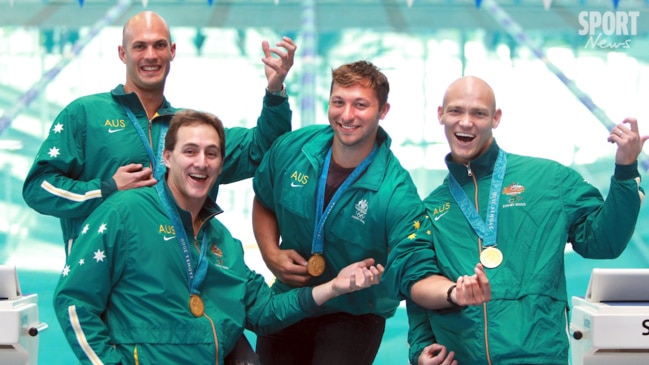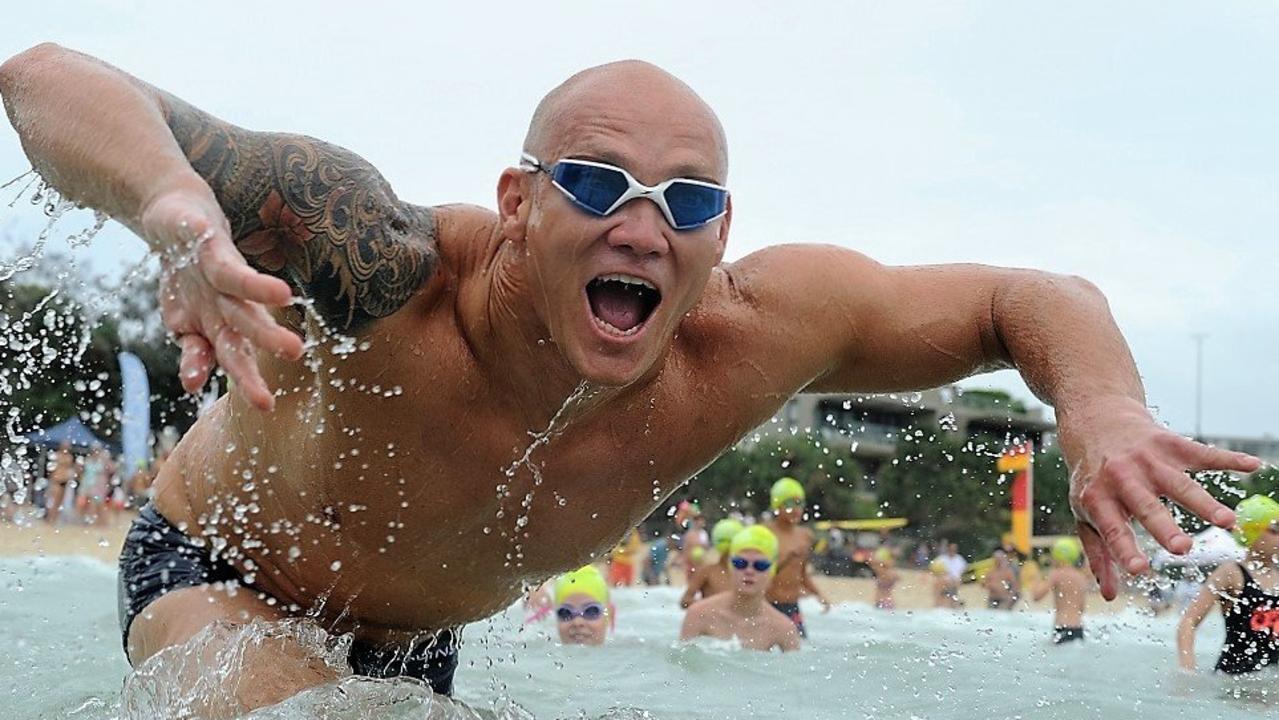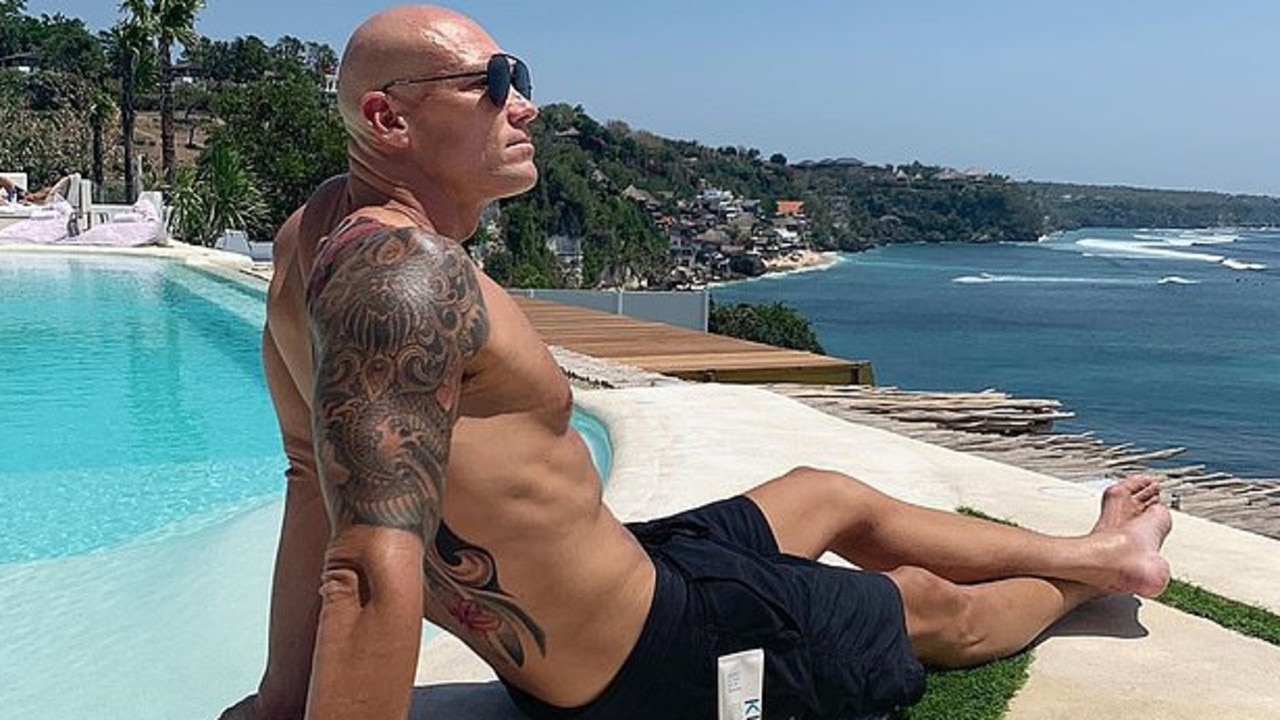Michael Klim speaks about living with chronic inflammatory demyelinating polyneuropathy
Australian swimming legend Michael Klim has opened up about living with a chronic illness after achieving international fame.

Australian swimming superstar Michael Klim has shared a glimpse into his daily struggle as he learns to live with rare neurological disorder.
Mr Klim was diagnosed with chronic inflammatory demyelinating polyneuropathy in 2020.
The auto-immune disease causes the body to attack the nerve covering, or myelin, which insulates and protects the nerves. CIDP leads to increasing sensory loss and weakness associated with loss of reflexes.
The triple Olympian revealed he had been diagnosed with the incurable disease in July 2022 after his health began to rapidly decline.

“In 2019 I had an ankle fusion operation in Sydney and began IVIG treatment (intravenous Immunoglobulin) to reduce the effect of the inflammatory condition that attacks the immune system,” Mr Klim wrote on his blog in July.
“My health began to deteriorate drastically. I was experiencing issues with my (degenerative) back and CIDP combined.
“I started to fall over, I couldn’t walk up the stairs, I needed to rely on my partner Michelle and the kids to lean on, and I found myself laying down in bed all day because the back pain became unbearable.”
The disease can impact people differently, but Mr Klim said it’s his legs and feet that seem to be the main source of pain.
He said there’s been significant muscle wastage in his legs and sensory loss in his feet, which makes walking and playing with his kids difficult.
“Physically, I’ve lost almost all my calves and muscle tone in my legs,” the sporting icon wrote.
“I’ve been fitted with special orthotics and a couple of different braces depending on the activity to help my foot drop.
“I’m also having frequent massages to keep the circulation moving in my legs. The process of putting all those additional things on gets tiresome.”
Speaking with the Sydney Morning Herald on Sunday, Mr Klim acknowledged that two years on since his diagnosis, he’s still trying to lean how to manage the day-to-day with CIDP.

“My counsellor and I have come up with a strategy where I give myself an hour a day to feel sorry for myself,” Klim told the publication.
“I can whinge as much as I want and feel down, but after that, then there are still a lot of things I can do and be functional and still have responsibilities as a parent and a coach and as a partner, and I can still do them effectively.
“I am trying to not let it consume me completely. But it’s hard.”
Having won six Olympic medals, including the memorable Sydney Olympics 4x100 freestyle relay that lives in the minds of many Australian swimming fans as one best displays of athleticism in history, the 45-year-old said he’s struggled to come to terms with his diagnosis.
He said he may even end up in a wheelchair.
“And to a degree the fear is still there. I think I am a bit better, in the sense I have accepted – to a degree – that these are the cards I have been dealt,” Mr Klim said.
“But I am still working through it. When we experience grief, you don’t just go one day, ‘I am fine, I am better now’. It affects you for much longer, and particularly because it is in my face daily.
“There was a fear because I got bad really quickly. I am now in a remission, stable phase. But is there is a fear I may go again at the same rate and if I degrade that quickly again, I probably will need assistance with walking and things like that.”
Mr Klim now travels to Australia every six to eight weeks from his home in Bali for intravenous Immunoglobulin treatment.
He said he’s thankful he can still swim but also tries to spend time each day in the gym to keep building his strength.

“I went through a period where I was completely deflated,” he said.
“I was unmotivated, I wasn’t looking after myself, eating junk, drinking too much.”
“There was a period where I wouldn’t say I completely gave up, but it took an effort. The people close to me and my loved ones, they saw I wasn’t really fighting.”
“It is a constant … I wouldn’t say battle, but it is a constant lifestyle for me now.
“I am working hard to not focusing on the things I can’t do anymore.
“I have to focus on the things I can do.”




